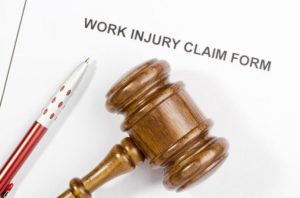
If you or a loved one has been injured on the job, you may be eligible for workers’ compensation benefits. Workers’ compensation is a state-sponsored insurance program that provides income, medical, and rehabilitation benefits to employees with work-related illnesses or injuries. In exchange for compensation benefits, employees forfeit their right to sue their employer for damages. Unfortunately, workers’ compensation laws are notoriously complicated and eligibility can often be difficult to determine. Read on to learn if you qualify for workers’ compensation benefits.
Employer Must Be Covered by Workers’ Compensation
In order to receive workers’ compensation benefits, you must work for a company that provides the insurance. Unfortunately, not all businesses are required to provide workers’ compensation insurance. State laws vary depending upon the type of business, how many employees it has, and what type of work the employees do. Generally speaking, most employers are required to provide coverage, however; some states allow businesses with fewer than 3 employees and charities to opt out.


Laborde Earles injury was great for me they took care of me very fast and professional. If for any reason I need legal help they will be who I use.
ClientYou Must Be an Employee
Not all workers are considered employees when it comes to workers’ compensation benefits. Independent contractors like computer consultants or freelance writers are typically not considered employees. Volunteers are also not considered employees and would not be eligible for benefits. However, there are exceptions to these rules and many employers misclassify workers, so it is important to consult a workers’ comp attorney if you have been denied benefits.


I thank God for Digger & David. I don’t know what we would have done if it hadn’t have been for them.
Rick Smith | ClientInjury or Illness Must Be Work-Related
To be eligible for workers’ compensation benefits, the injury or illness must be work-related. This is a broad term but typically encompasses anything that benefits your employer. Some of the most common work-related injuries include back injuries, carpal tunnel syndrome, or illnesses from exposure to hazardous chemicals. Eligibility for injuries that occur while on a lunch break, at an off-site social event, or while on an errand for a boss can be more difficult to determine. In instances where the injury doesn’t happen at work but is connected to the job, it is important to consult an experienced Lafayette personal injury attorney to ensure that you receive the compensation that you rightfully deserve.





